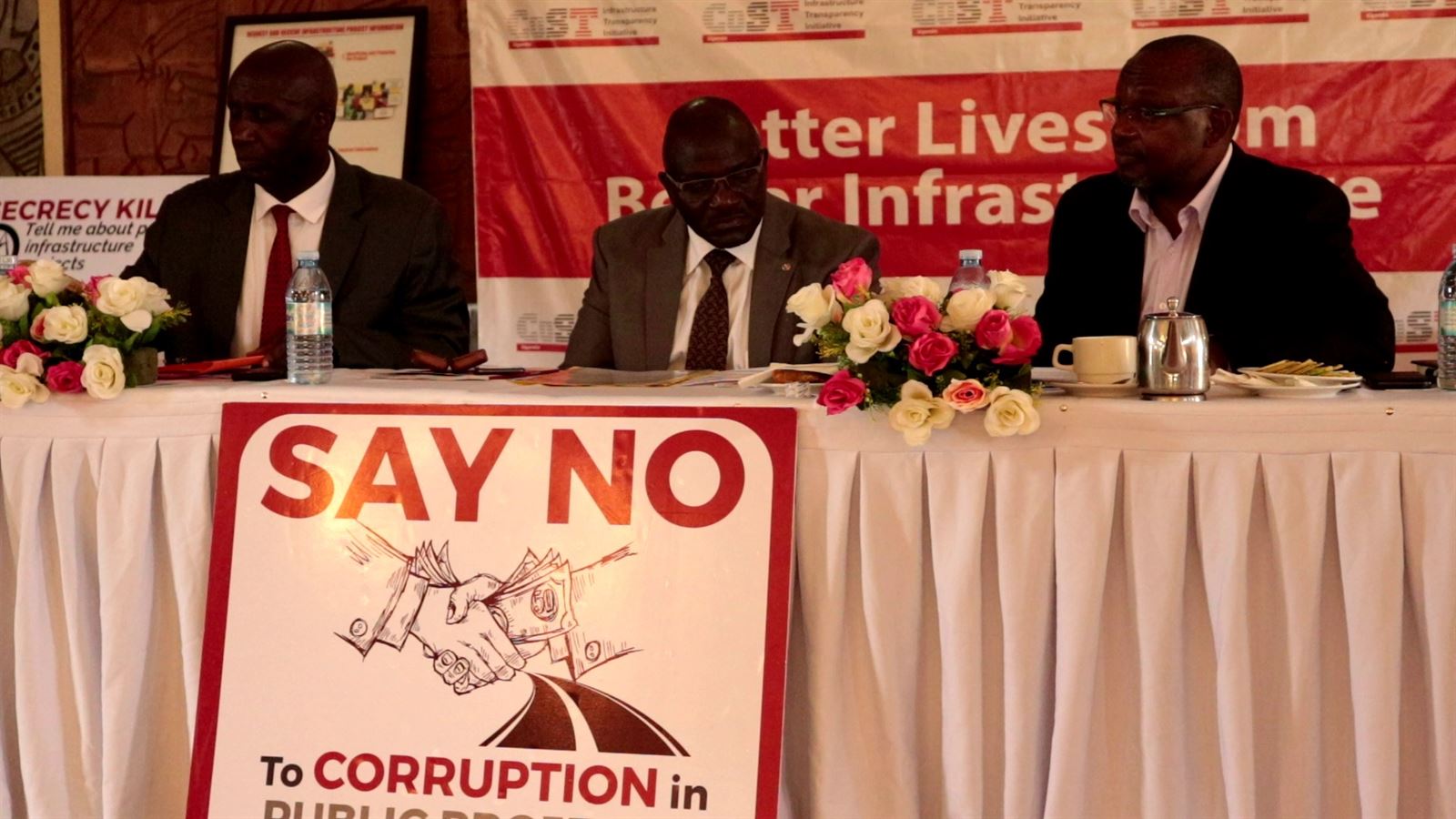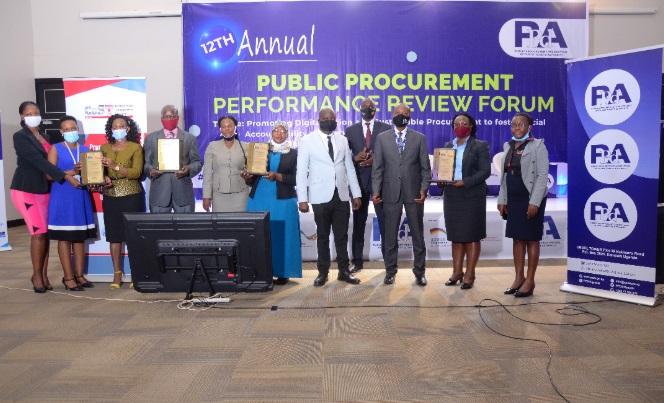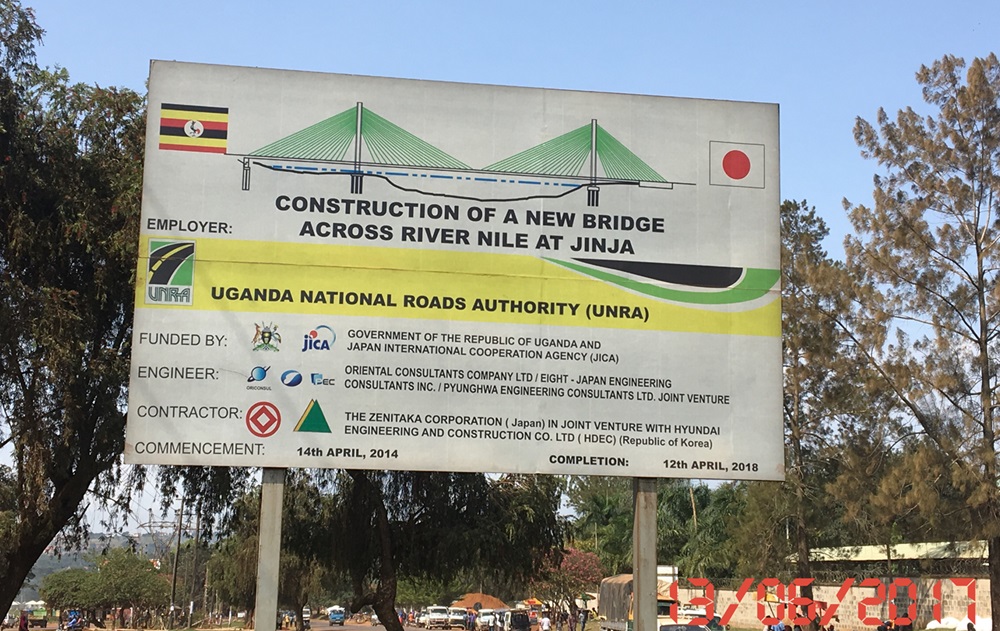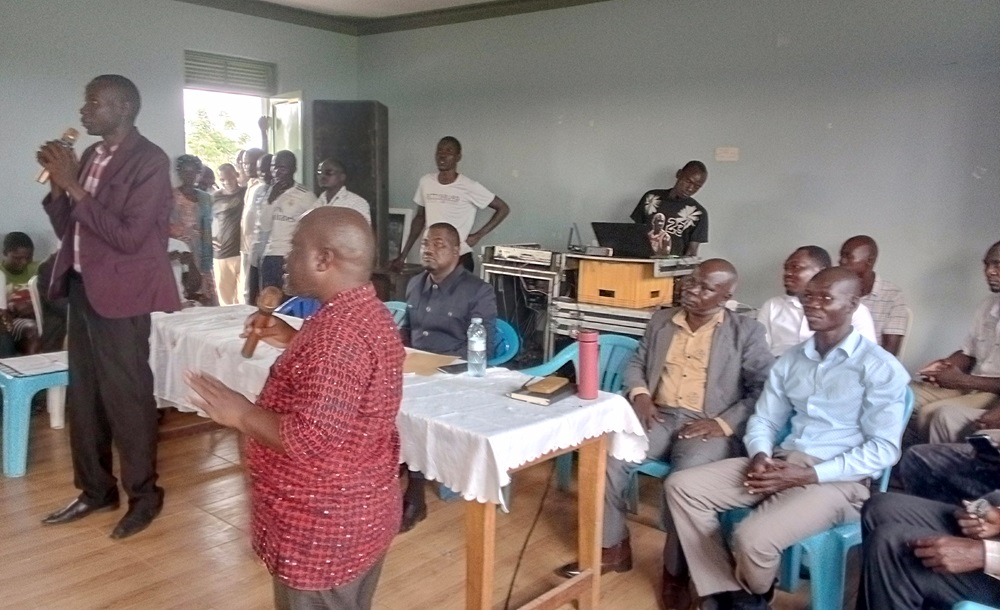
CoST Uganda published its 4th Assurance Report titled Ray of Sunshine, A Report of the 4th Assurance Process in Uganda on, 10th February 2021. The 4th Assurance process focused on 23 public infrastructure projects from eight Procurement Entities. The Assurance process was spread through the sectors of Education, Health, Water and Environment, Works and Transport. From the 4th Assurance process, we note that, the culture of transparency is taking root in the country, with the CoST Assurance process working as a learning tool to consolidate disclosure practices. Although involving different entities in each process, the global average levels of disclosure have improved in the year 2020.
Disclosure across the 23 projects was at an average of 61.5% an increase of 19.5% from the 3rd Assurance process which was at 42%. In regards to disclosure trends, Proactive disclosure increased from 43 to 54% whereas reactive disclosure tremendously increased from 42% to 69%. Twenty two of the Assured projects cost approximately Uganda shillings 4.6 Trillion this is USD 1,272 Million. Loans taken were 62%, whereas GoU contributed 25% and grants amounted to 12%.
Despite the increase in disclosure at other phases of project delivery, transparency on tendering information is still low with 52% of the data to establish participation of local consultants and 43% for contractors was not disclosed. Of the 23 projects, supervising contracts given to local firms were 9% whereas 30% went to foreign firms and 9% were joint ventures. On the works contracts, 35% went to local contractors while 22% went to foreign firms and there were no joint ventures. From these findings, the performance of the local businesses in infrastructure delivery needs to be enhanced in the interest of promoting local content.
The 4th Assurance report was launched by the Minister of Works and Transport Gen. Edward Katumba Wamala, who is also the Champion of CoST Uganda. In a speech read for him by the Engineer In Chief, Eng. Samson Bagonza, the Minister recommitted the Ministry’s stake and interest in seeing more businesses engaging with integrity, and that more assessments on public infrastructure projects kept the Government focused on delivering better value infrastructure. The Minister also indicated that the Ministry attached a lot of importance to CoST Uganda’s findings and recommendations and committed to doing everything possible, within the Ministry’s means, to make improvements in the planning, design, procurement and management of infrastructure projects by promoting the Open Contracting for Infrastructure Data Standard (OC4IDS).
”My Ministry will work with CoST Uganda and all other stakeholders to close the gaps identified in the projects assured. The NRM Government fully supports the principles of fair business practices and transparency when handling matters that concern the public and indeed public resources. There is no doubt therefore that the entire Government leadership up to the highest level is in support of independent monitoring of public infrastructure projects, as long as the findings and recommendations are used for purposes of continuous improvement.” Hon. General Katumba Wamala, MoWT Affirming the relevance of the Assurance process.
In a statement of action on the 4th Assurance recommendations, the Office of the Prime Minister as the leader of Government business in Parliament and Coordinator of Government programmes and policies, noted the concerns and received the recommendations from the 4th Assurance Report, and expressed commitment to take action on the recommendations. The OPM expressed concern that, until now, Public officials still conceal the otherwise regarded public information, that is meant to inform various stakeholders to guide in policy decisions. This is despite global and national efforts and measures to push for easier and faster access to public information. And that despite the available legal frameworks within Government, and the invested efforts in monitoring, evaluation and learning across the various sectors, it has been found that Government has continued to record massive delays in procurement, cost overruns, challenges in construction quality management etc. And the application of the ESHS requirements is still low.
Does increased disclosure in the 4th Assurance process mean more opportunities for the private sector?
There is progressive improvement in the level of disclosure for project and contract information on public infrastructure projects. Dislcosure has improved from 12 to 20 data points since the 2017 Scoping Study[1] in the CoST Infrastructure Data Standard (IDS) using various open data platforms, and more projects are disclosed quartely, with atleast 449 projects disclosed in 2020 rising from 149 in the year 2019. The national dislcosure levels for public infrastructure projects are progressively increasing as observed in the 4th Assurance Process where dislcosure increased from 42% in 2019 to 61.5% in the year 2020 across the 23 sampled projects from eight high spending PDEs. The 23 projects were worth 4.6 Trillion Uganda shillings. More dislcosure enables the private sector to know existing opportunities to engage in, prepare bankable bids and enables the general public to engage in monitoring delivery of projects.
Disclosure has improved, and this is a good sign for Uganda with regards to transparency in public infrastructure procurement processes. This means that progressively more business opportunities are opening up for the private sector, although trends in disclosure levels do change at certain periods of the financial year, a factor that needs to be addressed to inform access to information and participation. Disclosure tends to be high towards the end of the financial year and reporting quarters, and sharply lowers at the start of the financial year. This scenario could be attributed to two factors: a general lack of incentives or interest from public officials to publish data, or that there are no projects in procurement at these times to be disclosed. This calls for concerted efforts by all stakeholders, especially oversight bodies, to ensure compliance with timely and consistent disclosure.
In his remarks at the launch of the 4th Assurance report, Gilbert Sendugwa, the Senior Regional Manager for Africa, CoST International, who is also the Executive Director, AFIC noted that disclosure has been one of the main challenges in the Assurance process. He noted CoST International’s support towards efforts in regards to putting in place measures for disclosure such as; an Infrastructure Transparency Portal or establishing a Formal Disclosure Requirement, to address the challenges of infrastructure data categorisation; issues of cost and time overruns, challenges in procurement transparency, stakeholder engagement, quality control, safety concerns on project sites, the general challenge of planning are not new, we have observed such concerns in previous reports, it is our hope and prayer that Government through the line Ministries, Agencies and Departments finds lasting solutions to addressing these issues.
In his remarks, Engineer in Chief, Eng. Samson Bagonza asked CoST to prepare annual reports on the sector in regards to transparency and these would be discussed across all sector review meetings. CoST assurance activities have not only improved the disclosure of construction project information but also brought forward construction industry issues that need to be addressed if the construction industry is to be strengthened and developed. CoST Uganda should prepare annual reports for circulation among key stakeholders and also present the reports at relevant Annual Sector Review Workshops. Engineer In Chief, MoWT, Samson Bagonza at the Launch of the Assurance report.
What does CoST Uganda recommend from the 4th Assurance Report?
- Government through Public Procurement and Disposal of Public Assets Authority (PPDA) is encouraged to issue a standard disclosure template of key activities undertaken in infrastructure projects and it should be implemented by all PDEs. This should be accompanied with associated guidelines on how infrastructure data should be disclosed. The CoST Infrastructure Data Standard (IDS) and the Open Contracting for Infrastructure Data Standard (OC4IDS) provides for such a standard.
- PDEs should ensure, regular updates of the public disclosure platforms and establish internal data management and retrieval systems for infrastructure data. NITA – U should assist PDEs to put up robust systems to address this.
- Ministry of Finance, Planning and Economic Development and PPDA are encouraged to fast track alignment of the Electronic Procurement Portal (E-GP) and the Government Procurement Portal (GPP) to the OC4IDS to enable full disclosure and categorization of procurement data.
- PPDA should amend the Standard Notice of Best Evaluated Bidder to provide for the estimated value of the works made by the Accounting Officer at the initiation of the procurement. This is important for confirmation that the contract price of the Best Evaluated Bidder is below the Accounting Officer’s estimate in accordance with the PPDA Act, 2003.
- PPDA and the Local Content Monitoring Committee are encouraged to conduct quarterly monitoring of the implementation of the local content and reservation schemes in accordance with the Local Content Guidelines. In addition, these guidelines should be turned into regulations and provide sanctions on noncompliance. PPDA and MoFPED should assess the efficacy of the guidelines annually.
- The Accounting Officers should ensure that the monthly and quarterly contract reports to be submitted by the Contract / Project Manager and the Procurement and Disposal Unit respectively as provided for under the PPDA (Contracts) Regulations, 2014, are appropriately furnished and assessed.
- PPDA should require PDEs to publish the contract management plans on the PDEs websites and in related media so that the public and civil society can effectively follow up on the progress of projects. In addition, PDUs should ensure that they monitor the progress of contracts in accordance with the PPDA (Contracts) Regulations, 2014.
- PDEs, PPDA, MoWT, OPM and MoFPED should reinforce joint stakeholder Monitoring and Evaluation efforts for infrastructure projects with other stakeholders such as CoST Uganda to ensure compliance with national legislation and best practices in a bid to promote value for money.
- PDEs should recommend to PPDA for suspension the contractors that substantially breach their contractual obligations in accordance with the PPDA Act, 2003. This will curtail cases of contractors successfully participating in tenders in different PDEs while having a poor performance track record.
- PPDA should conduct awareness raising workshops for PDEs and contractors on the application of the ESHS requirements in the revised Standard Bidding Document for works, and ensure that all projects have established provision of GRC (Grievance Redress Committees)
- PPDA is encouraged to review the procurement guidelines to provide for considerations of PWDs in infrastructure planning and implementation, participation of women, youth and PWDs and should require PDEs to report on such considerations.
About CoST; CoST – the Infrastructure Transparency Initiative is the leading global initiative improving transparency and accountability in public infrastructure. CoST Uganda is a national chapter of CoST International, a charity based in the United Kingdom. CoST works with government[2], private sector and civil society[3] to promote the disclosure and validation of data from infrastructure projects. This helps to inform and empower citizens and enables them to hold decision-makers to account. Our experience indicates that informed citizens and responsive public institutions help drive reforms that reduce mismanagement, inefficiency, corruption and the risks posed to the public from poor quality infrastructure. The vision of CoST is to contribute towards Quality infrastructure, stronger economies and better lives; and the mission is to; Enable a multi-stakeholder approach in the disclosure, validation and use of infrastructure data. This improves transparency, participation and accountability and contributes to quality infrastructure that meets people’s needs. Visit our website to learn about the 1st, 2nd, and 3rd Assurance process in Uganda.
[1] https://www.cost.or.ug/download/scoping-study-full-report-july-2017/
[2] http://infrastructuretransparency.org/our-approach/cost-feature-multi-stakeholder/government/
[3] http://infrastructuretransparency.org/our-approach/cost-feature-multi-stakeholder/civil-society/



